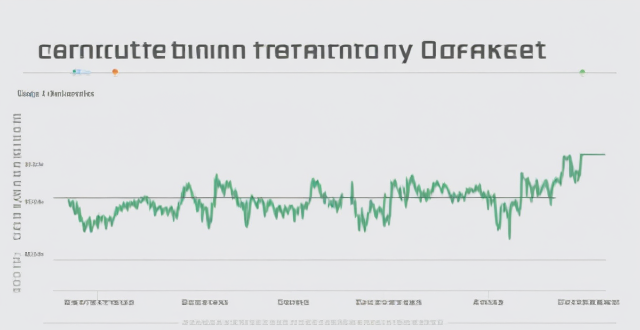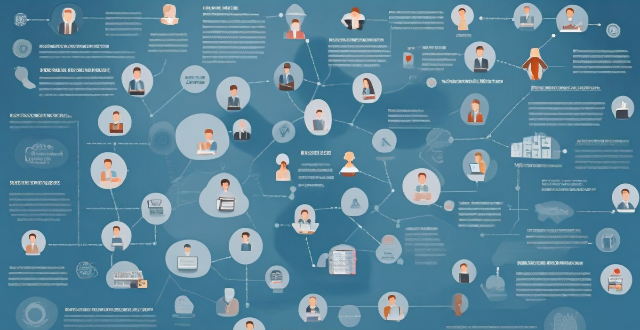Market Warranty

What is the difference between an iPhone gray market and an official one ?
The text describes the key differences between an iPhone gray market and an official one. The main points are: 1. Authorization: Gray market devices are not authorized by Apple, while official market devices are sold through authorized retailers and carriers. 2. Warranty: Gray market devices may not come with a warranty or have limited warranty, while official market devices come with a warranty and support from Apple. 3. Price: Gray market devices may be cheaper due to lack of authorization and warranty, but customers should be cautious of potential scams and frauds. Official market prices are set by Apple and customers can take advantage of trade-in programs and financing options. 4. Accessories and Packaging: Gray market devices may come without original packaging, accessories, or documentation, while official market devices come with original packaging, accessories, and documentation. 5. Software and Updates: Gray market devices may not receive timely software updates or support from Apple, while official market devices receive regular software updates and support from Apple. 6. Resale Value: Gray market devices may have a lower resale value due to lack of warranty and potential issues with authenticity, while official market devices retain their value better due to warranty and support from Apple.

Is there a warranty for iPhone parallel imports ?
Parallel imports of iPhones are not directly imported by the manufacturer or authorized distributors, but rather by third-party resellers who purchase the devices from other countries and sell them in their own country. These phones may not come with a warranty from the manufacturer or authorized service providers. According to Apple's warranty policy, products purchased from an unauthorized reseller are not eligible for coverage under the Apple One-Year Limited Warranty. This means that if you buy a parallel import iPhone, it will not be covered by Apple's standard warranty. Some resellers of parallel imports may offer their own warranties or extended service plans, but these warranties are typically less comprehensive than those offered by Apple and may have limitations on what is covered. Purchasing a parallel import iPhone can come with certain risks, including no manufacturer support, potential quality issues, difficulty in repairs, and software updates might be delayed or unavailable for parallel imports due to regional differences in network compatibility and software certification processes. Before deciding to purchase a parallel import iPhone, consider the following factors: cost savings vs. risk, reseller reputation, understand your rights as a consumer, and explore alternative options such as refurbished models sold by Apple or certified pre-owned devices from reputable sources that still offer some form of warranty protection.

Is there a warranty for second-hand iPhones ?
When purchasing a second-hand iPhone, it is important to consider the warranty status of the device. The warranty coverage for a used iPhone depends on several factors, including the age of the device, its condition, and whether it was purchased from an authorized reseller or a third-party seller. In this article, we will explore the different types of warranties available for second-hand iPhones and provide tips on how to ensure you are getting a reliable device. If you purchase a second-hand iPhone from an authorized reseller, such as Apple's official refurbished store, you may be eligible for an Apple Certified Pre-owned Warranty. This warranty provides coverage for one year and includes hardware repairs, software support, and accessories. If you purchase a second-hand iPhone from a third-party seller, the warranty coverage may vary. Some sellers may offer a limited warranty that covers certain aspects of the device, while others may not provide any warranty at all. It is essential to ask the seller about the warranty before making a purchase and to carefully read any terms and conditions associated with the warranty. In some cases, a second-hand iPhone may not have any warranty coverage. Without a warranty, you assume all risks associated with the device's functionality and condition. If something goes wrong with the iPhone after purchase, you will be responsible for paying for any necessary repairs or replacements. To ensure a reliable second-hand iPhone purchase, check the device's IMEI number to ensure that it has not been stolen or blacklisted due to unpaid bills or insurance claims. Inspect the device in person (if possible) and test its functionality by making a call, sending a text message, and checking the battery life. Ask the seller about their return policy and consider purchasing an extended warranty from a third-party provider if you are concerned about potential issues with your second-hand iPhone. By following these tips and carefully researching your options before making a purchase, you can increase your chances of getting a reliable second-hand iPhone that meets your needs and budget.

Can you convert a regular diesel car into a diesel hybrid car ?
Converting a regular diesel car into a diesel hybrid is possible but involves technical challenges, high costs, and potential legal and warranty issues. It requires installing a battery pack, integrating electric motors, and modifying the drivetrain and control systems. Professional assistance is recommended due to the complexity of the project. The financial investment may not be justified compared to buying a new hybrid vehicle. Legally, modifications could void the warranty and affect insurance coverage, and compliance with emissions and safety standards must be ensured.

Can I return a second-hand iPhone if it has issues ?
Purchasing a second-hand iPhone can be an economical option for those who want to own an Apple device without spending the full retail price. However, it's important to consider the implications of buying a pre-owned phone, particularly in terms of its condition and warranty. If you find that your second-hand iPhone has issues, whether they are cosmetic or functional, the question arises: Can you return it? When buying from an individual, there is no formal return policy unless agreed upon during the sale. You may have a short window to check the device and report any major issues. Many stores selling used devices will offer a limited warranty or return period. Be sure to ask about their specific policies before making a purchase. If the iPhone is still under Apple's warranty or you purchased AppleCare+ with it, you might be able to get support directly from Apple for certain issues. This does not usually include returns but covers repairs. Assess the issue by checking if it's a software or hardware problem. Contact the seller and negotiate a solution depending on the issue. Provide evidence like detailed descriptions and photos of the problem to facilitate understanding and negotiation. Seek professional help by visiting an authorized repair center or consulting with Apple if the phone is under warranty. Inspect the phone before buying by testing all functions and checking the appearance for any signs of damage that weren't disclosed by the seller. Purchase from reputable sources like certified pre-owned iPhone retailers who provide guarantees and inspections. Ask for proof of warranty and request documentation showing any remaining manufacturer warranty or additional coverage. While returning a second-hand iPhone with issues can be challenging and depends heavily on the seller's policies and the nature of the problems, taking careful steps during and after the purchase can mitigate risks. Always test the device thoroughly, inquire about warranty information, and maintain open communication with the seller to address any concerns that may arise.

How can I trust the seller of a second-hand iPhone ?
When purchasing a second-hand iPhone, it is important to ensure that you can trust the seller. Here are some tips on how to do so: 1. Check the seller's reputation on online marketplaces or social media platforms. 2. Ask for proof of ownership such as receipts or warranty information. 3. Inspect the phone in person or ask for detailed photos and videos from different angles. 4. Test the phone's functionality by checking battery life, camera quality, speaker and microphone quality, buttons and ports, Wi-Fi and cellular connectivity, touchscreen responsiveness, app performance, iCloud account, activation lock, IMEI number, warranty status, water damage indicator, serial number, storage capacity, carrier compatibility, price, return policy, payment method, shipping method, meetup location, and test duration.

What should I check before buying a second-hand iPhone ?
When purchasing a used iPhone, there are several factors to consider to ensure that you are getting a good deal and a functional device. Here are some important steps to take: 1. Check the Physical Condition - Examine the Screen for cracks, scratches, or damage. - Inspect the Body for major dents or scratches. - Test Buttons and Ports including volume buttons, power button, charging port, and headphone jack. 2. Verify the Functionality - Check Battery Health using a battery health app or asking the seller. - Test Camera Quality by taking photos/videos. - Speaker and Microphone Test by playing music/videos and making calls or recording voice memos. 3. Software and Security - iOS Version compatibility with latest apps and services. - Activation Lock removal from previous owner's Apple ID account. - iCloud logout and Find My Phone disablement to prevent remote locking or tracking issues. 4. Carrier Compatibility - Determine if the iPhone is locked to a specific carrier or unlocked for multiple networks. - SIM Card Slot condition and functionality. 5. Warranty and Return Policy - Inquire about any remaining manufacturer warranty or extended warranty purchased by the previous owner. - Clarify the return policy in case of problems after purchase that were not apparent during inspection.

What is the current state of the US stock market ?
The US stock market is currently experiencing a mix of positive and negative trends, including strong economic growth and technology sector performance, but also significant market volatility and trade tensions. Factors impacting the market include interest rates, global economic conditions, and geopolitical risks.

What are the best practices for pricing items in a second-hand market ?
When selling items in a second-hand market, it's essential to follow best practices for pricing to maximize profits and ensure a smooth transaction. Key tips include researching market value, considering the item's condition, setting a fair price, being open to negotiations, and updating the listing regularly. By following these guidelines, sellers can attract more potential buyers and increase their chances of making a successful sale.

What are the challenges and opportunities for developing countries in the carbon trading market ?
Challenges and opportunities for developing countries in the carbon trading market include lack of infrastructure, legal and regulatory hurdles, market access and information asymmetry, capacity building needs, economic growth and investment, technology transfer and innovation, environmental sustainability, policy influence and leadership.

How has social distancing impacted the economy and job market ?
Social distancing measures have had a significant impact on the economy and job market, including decreased consumer spending, supply chain disruptions, high unemployment rates, increased demand for remote work, and changes in job seeking behavior.

How do political events affect the stock market, and how can they be analyzed ?
This comprehensive analysis explores the impact of political events on the stock market, including economic policies, regulatory changes, international relations, and elections. It also provides strategies for analyzing their potential effects, such as staying informed, diversifying your portfolio, using technical and fundamental analysis, and monitoring sentiment indicators.

How can I invest in the carbon trading market ?
The carbon trading market offers a lucrative investment opportunity for those interested in environmental sustainability and financial gain. To invest successfully, one should understand the basics of carbon trading, research different carbon markets, choose a broker or exchange, determine an investment strategy, and start trading while managing risk.

How has the COVID-19 pandemic impacted the stock market, and what insights can be gained from this analysis ?
The COVID-19 pandemic has caused increased volatility and uncertainty in the stock market. Certain industries, such as travel and hospitality, have been negatively impacted while others, like healthcare and technology, have experienced growth. Government interventions aimed at mitigating economic effects have both stabilized markets and created long-term concerns. The rise of remote work and digital transformation has benefitted companies able to adapt quickly. As economies begin to recover with widespread vaccination, investors should monitor developments closely to make informed decisions.

What is the carbon trading market ?
The carbon trading market is a financial mechanism that allows for the trading of emissions reductions to meet greenhouse gas emission targets. It is based on cap-and-trade, where a limit is set on total emissions and those who reduce their emissions below the cap can sell their surplus allowances. Key components include carbon credits, emissions caps, trading mechanisms, verification and certification, and regulation and governance. Benefits include cost-effectiveness, flexibility, innovation incentives, and global collaboration. Challenges and criticisms include equity concerns, market inefficiencies, environmental integrity, and political will. The carbon trading market serves as a crucial tool in the fight against climate change but requires ongoing attention and improvement to maximize its effectiveness.

What is the role of macroeconomic indicators in stock market analysis ?
The article discusses the importance of macroeconomic indicators in stock market analysis, highlighting key indicators such as economic growth, inflation, interest rates, employment, and government policies. It suggests monitoring these indicators to identify trends and patterns that can impact the stock market, integrating this analysis with other tools for a comprehensive view.

What is the role of a broker in the stock market ?
Brokers play a key role in the stock market, acting as intermediaries between investors and financial markets. They facilitate trades, provide market information, offer investment advice, manage accounts, and execute complex trades. Their expertise helps investors make informed decisions and manage their portfolios effectively.

What role does natural gas play in the global energy market ?
Natural gas is a key player in the global energy market due to its environmental advantages, economic benefits, contributions to energy security, technological advancements, and versatile applications across sectors.

What is the difference between a bull and bear market ?
The main difference between a bull and bear market lies in the direction of the market trend and the overall sentiment among investors. Bull markets are characterized by rising stock prices and optimism, while bear markets are characterized by falling stock prices and pessimism.

How might a lunar base influence the global economy and job market ?
The establishment of a lunar base could significantly impact the global economy and job market by increasing investment in space technology, creating new industries, driving innovation, and fostering international collaboration. It could also create numerous job opportunities and expand educational opportunities focused on space-related disciplines.

What is the stock market and how does it work ?
The stock market is a financial ecosystem where investors can buy and sell ownership shares of publicly traded companies. Companies use it to raise capital, while investors aim to share in the company's success. Prices of stocks are determined by supply and demand, influenced by various factors including company performance, market trends, and economic conditions. The market is regulated to protect investors and maintain fairness. Investing in stocks comes with risks but also offers potential rewards, making it a popular choice for long-term investments.

How can I protect my growing wealth from market fluctuations ?
Market fluctuations are a natural part of any investment journey. However, as your wealth grows, it becomes increasingly important to implement strategies that can help protect your assets from the ups and downs of the market. Here's how you can do it: - Diversify Your Portfolio - Use Hedging Strategies - Stay Updated on Economic Indicators - Regularly Review and Rebalance Your Portfolio - Work with Financial Advisors

How do I invest in the stock market ?
The text provides a step-by-step guide on how to invest in the stock market. It emphasizes the importance of education, determining investment goals, choosing a strategy, opening a brokerage account, selecting investments, monitoring them, and maintaining patience and discipline. The process involves learning about different types of stocks, understanding risks, diversification, and risk management. It also includes researching brokerage firms, funding an account, choosing individual stocks or mutual funds based on company performance, and staying informed about market changes. Overall, the text encourages potential investors to approach stock market investing with careful planning and research to achieve their financial goals over time.

What is the importance of market trends in stock analysis ?
Market trends play a crucial role in stock analysis by providing insights into the overall direction and momentum of the market. There are three types of market trends: uptrends, downtrends, and sideways trends. Understanding market trends is essential for making informed investment decisions. By analyzing market trends, investors can identify potential opportunities and risks associated with specific stocks or sectors. To effectively use market trends in stock analysis, investors should first identify the current market trend and then analyze individual stocks or sectors relative to the overall market. Make informed investment decisions based on your analysis of market trends and individual stocks or sectors. Monitor changes in market trends and adjust your investment strategy accordingly.

How is renewable energy affecting the traditional energy market ?
Renewable energy sources are having a significant impact on the traditional energy market, affecting pricing, market share, job creation, and environmental concerns. The increased efficiency and reduced installation costs of renewable technologies have made them more competitive with traditional energy sources, leading to declining electricity prices overall. Additionally, the growing demand for renewable energy sources has led to an increase in their market share, particularly for solar and wind power. The transition to renewable energy is also creating new job opportunities across various sectors of the economy, while addressing environmental concerns associated with fossil fuel consumption.

What are the risks involved in investing in the stock market ?
The stock market offers lucrative opportunities for investors but also comes with its own set of risks. These include: - Market Risk, which affects the entire market and cannot be diversified away; - Liquidity Risk, where you may not be able to sell your shares quickly enough; - Interest Rate Risk, affecting bond investors and stock prices; - Business Risk, related to a company's performance declining due to factors such as poor management or increased competition; - Inflation Risk, where inflation erodes the purchasing power of your investments; - Political Risk, impacting your investments due to political events; - Currency Risk, affecting those who invest in foreign markets.

How are carbon credits traded and what is their market value ?
The article discusses the trading of carbon credits, which are tradable permits allowing holders to emit certain amounts of greenhouse gases. It explains how carbon credits are traded and their market value, outlining steps in their creation, verification, issuance, trading, and retirement. It also notes that the market value of carbon credits varies based on project type, location, and demand for offsets.

How do immigration policies affect the real estate market ?
Immigration policies have a significant impact on the real estate market, affecting demand for housing, property prices, rental markets, and long-term urban development patterns. Open immigration policies can lead to an influx of new residents, increasing demand for housing and contributing to a diversification of the housing market. This can result in higher property values and rental rates, as well as more construction projects to accommodate the growing population. However, changes in immigration policies can also affect the availability of financing options for potential homebuyers, further influencing property prices. In addition, immigration policies can have long-term effects on urban development patterns, creating new opportunities for investment and development. Understanding these relationships is crucial for anyone involved in the real estate industry or considering investing in property within regions affected by changing immigration policies.

How do economic indicators affect stock market performance ?
Economic indicators significantly impact stock market performance by reflecting the health of an economy. Key indicators include GDP, inflation rate, unemployment rate, interest rates, trade balance, consumer confidence index, and manufacturing index. Each of these measures provides insights into different aspects of economic activity, influencing investor sentiment and decision-making processes. By understanding how these indicators affect the stock market, investors can make informed decisions to maximize returns while minimizing risks.

What are some common mistakes made in stock market analysis ?
The text discusses common mistakes made in stock market analysis, including relying too heavily on past performance, ignoring market volatility, failing to consider external factors, focusing solely on technical analysis, emotional bias, inadequate diversification, neglecting tax implications, and overconfidence in predictions. To avoid these mistakes, analysts and investors should consider a range of factors beyond historical data, incorporate an understanding of market fluctuations into their analysis, take into account both internal and external influences, use a balanced approach that combines technical and fundamental analysis, maintain objectivity, diversify investments, be aware of tax implications, and remain humble and flexible when dealing with uncertain markets. By avoiding these mistakes, analysts and investors can make more informed decisions and potentially improve their chances of achieving successful outcomes in the stock market.